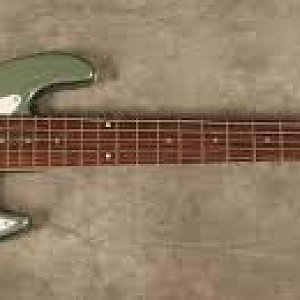Sadowsky built the MetroExpress basses in an attempt to get high-quality Sadowsky instruments into the hands of players at a lower price point than even the artisan-built Japanese Metro models. My experience with this instrument indicates to me that Mr. Sadowsky's goal was a resounding success. More information about the Japanese ME basses can be found on the Sadowsky website by following this link:
MetroExpress Basses – Sadowsky Guitars
Tone:
The combination of Sadowsky hum-cancelling single coils and 2-band pre with vintage tone control (VTC) deliver the classic J-on-steroids tone in spades and offer a tremendous amount of versatility. Even as someone who prefers not to adjust onboard EQ controls, and instead favor the pickup pan and passive tone, there is an inherent voicing to the Sadowsky preamp that sweetens the tone of a jazz bass and, at least to my ears, makes it sound just right. The VTC spans a wide and useful tonal range, giving bright pick and slap tones when wide open and mellower fingerstyle tones when dialed back. One of my favorite tricks with the pickup pan is to move it just slightly off center in either direction - toward the neck it offers a fat fingerstyle and slap tone; just slightly toward the bridge, the bass yields a more articulate, yet still full sounding finger tone when plucking near the bridge pickup.
Build Quality:
Having owned a couple of Japanese Metroline Sadowskys, the build quality of the MetroExpress is on par with the Metros in every way I can see. Flawless fretwork, finishing, and hardware installation are evident. The only 'cheap' feeling thing that came with the instrument, in my opinion, is the case, but it is still adequate.
Features:
The MetroExpress basses offer almost all of the same features available on a comparable Japanese Metro bass and are available in both 4 and 5 string versions. The differences are that the MEs are only available in the classic Sadowsky 21 fret configuration, and come in a limited palette of six colors. While the limited options may seem like a downside to some, the choice to do this is what allowed these instrument to be produced and sold at such a comparatively low cost. The MEs have a different, and to me, preferable neck finish, as I will explain below.
Feel:
One of my favorite things about this bass is the incredibly smooth satin nitrocellulose finish on the neck. This is one feature that the MEs actually share with the NYC models rather than the Japanese Metro models. The Metro basses feel as though they have a satin poly finish on the neck - still nice and smooth - but there is something about the satin nitro on the ME that I prefer. There's nothing quite like it.
As this review is about the five string version of this bass, one feel-related aspect of note is the nut width and string spacing at the bridge, which are relatively wide for a 5 string at 1.875" and 19 mm, respectively. This leaves lots of room for those who prefer it, but those who like a tighter string spacing on their basses may want to give this one a test drive before purchasing.
Value:
Given that these basses were Sadowsky's lowest-cost instrument at their time of manufacture and still offered all of the Sadowsky sound and build quality, it's fair to argue that not only were these instruments a great value, they were possibly the best value that Sadowsky ever offered in an instrument, and in my opinion, it's a shame that they're no longer in production. As of the writing of this review, September 2022, these basses are selling on the used market for hundreds more than their new asking price, and the closest relative in current production, the now made in Germany Metroline basses, are retailing north of $3500.
Is there a downside to these basses? Well, one thing that can be important to a player shelling out serious cash for an instrument is how it's made, and there can be a certain intangible magic to playing an instrument that one knows was built by hand, and not in a factory. Sadowsky is largely known for this small scale, personal attention to detail in their NYC and Japanese built instruments. In a MetroExpress, Sadowsky has been open about the fact that this is a factory built instrument, and relies more on machines to do the work than their previous offerings. Does this take the magic out of these basses? I suppose that depends on what a player values in an instrument. All I can say is that this bass is as well built and capable a bass guitar as any I have ever played, and even after years of owning it, it still makes me smile every time I pick it up to play it.
